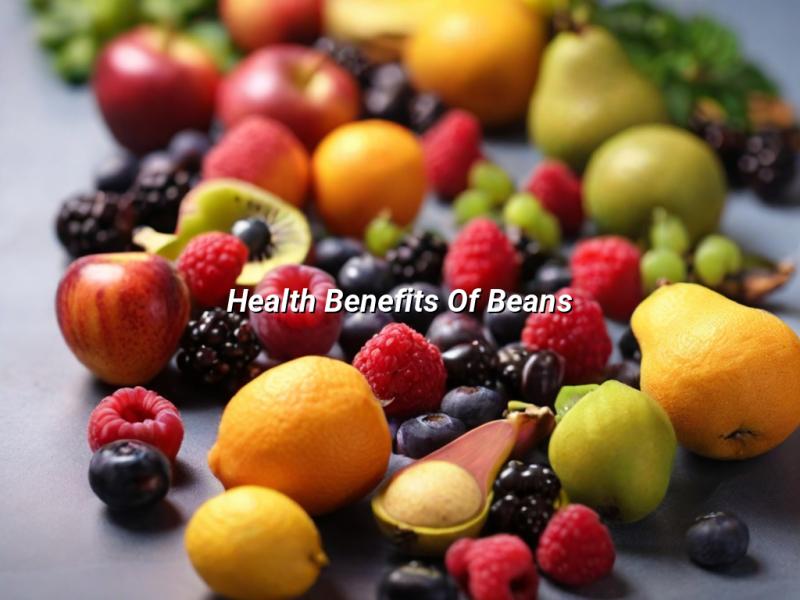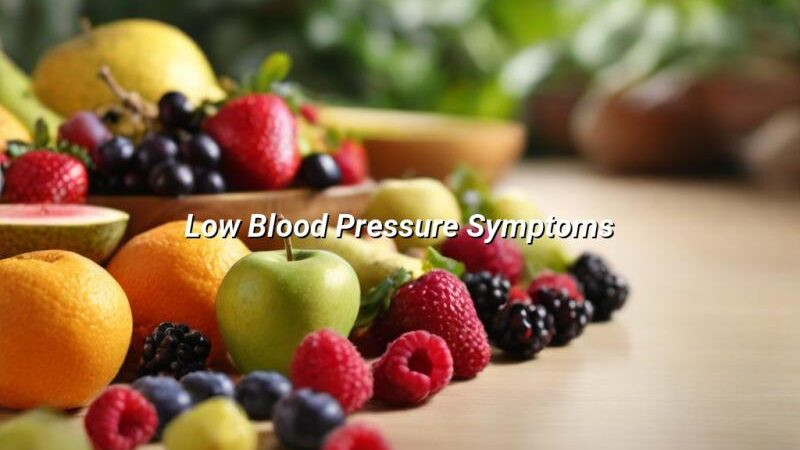Health Benefits Of Beans

How Eating Beans Can Help Lower Your Cholesterol
Eating beans is a great way to help lower your cholesterol levels. Beans are a type of legume, and they are a great source of dietary fiber, protein, and other essential nutrients. Studies have shown that eating beans can help reduce levels of low-density lipoprotein (LDL) cholesterol, which is the “bad” cholesterol that can lead to heart disease.
Beans are a great source of soluble fiber, which helps to reduce cholesterol levels by binding to bile acids in the digestive tract. Bile acids are made from cholesterol, so when the fiber binds to them, it helps to reduce the amount of cholesterol in the body. Additionally, beans are a great source of plant-based protein, which can help to reduce levels of LDL cholesterol.
Eating beans can also help to reduce levels of triglycerides, which are a type of fat found in the blood. Triglycerides are associated with an increased risk of heart disease, so reducing them can help to improve your overall heart health.
In addition to helping to reduce cholesterol levels, beans are also a great source of other essential nutrients. They are a good source of vitamins and minerals, including folate, iron, magnesium, and potassium. They are also a great source of antioxidants, which can help to protect your cells from damage.
Eating beans is an easy and delicious way to help lower your cholesterol levels and improve your overall health. Try adding beans to your meals, such as soups, salads, and stews. You can also use them as a side dish or as a main course. Eating beans regularly can help to reduce your risk of heart disease and improve your overall health.
The Nutritional Benefits of Different Types of Beans
Beans are a nutritious and versatile food that can be incorporated into a variety of dishes. They are an excellent source of protein, fiber, vitamins, and minerals, making them a beneficial addition to any diet. Different types of beans offer unique nutritional benefits, making them a great choice for those looking to improve their overall health.
Black beans are a great source of protein, fiber, and antioxidants. They are also rich in folate, magnesium, and iron. Black beans are known to help reduce cholesterol levels, improve digestion, and regulate blood sugar levels.
Kidney beans are an excellent source of protein, fiber, and B vitamins. They are also rich in iron, magnesium, and potassium. Kidney beans are known to help reduce the risk of heart disease, lower cholesterol levels, and regulate blood sugar levels.
Pinto beans are a great source of protein, fiber, and B vitamins. They are also rich in iron, magnesium, and potassium. Pinto beans are known to help reduce the risk of heart disease, lower cholesterol levels, and regulate blood sugar levels.
Lentils are an excellent source of protein, fiber, and B vitamins. They are also rich in iron, magnesium, and potassium. Lentils are known to help reduce the risk of heart disease, lower cholesterol levels, and regulate blood sugar levels.
Chickpeas are a great source of protein, fiber, and B vitamins. They are also rich in iron, magnesium, and potassium. Chickpeas are known to help reduce the risk of heart disease, lower cholesterol levels, and regulate blood sugar levels.
Navy beans are an excellent source of protein, fiber, and B vitamins. They are also rich in iron, magnesium, and potassium. Navy beans are known to help reduce the risk of heart disease, lower cholesterol levels, and regulate blood sugar levels.
Overall, beans are a nutritious and versatile food that can be incorporated into a variety of dishes. Different types of beans offer unique nutritional benefits, making them a great choice for those looking to improve their overall health.
The Role of Beans in Weight Loss and Maintenance
Beans are a nutritious and versatile food that can play an important role in weight loss and maintenance. They are a great source of protein, fiber, vitamins, and minerals, and are low in fat and calories. Eating beans can help you feel fuller for longer, which can help you reduce your overall calorie intake and lose weight.
Beans are high in fiber, which helps to slow digestion and keep you feeling full for longer. This can help you reduce your overall calorie intake and lose weight. Fiber also helps to regulate blood sugar levels, which can help to reduce cravings and prevent overeating.
Beans are also a great source of protein, which is essential for building and maintaining muscle mass. Eating enough protein can help you maintain a healthy weight and prevent muscle loss during weight loss. Protein also helps to keep you feeling full for longer, which can help you reduce your overall calorie intake.
Beans are also a great source of vitamins and minerals, which are essential for overall health and wellbeing. Eating beans can help you get the vitamins and minerals you need to stay healthy and maintain a healthy weight.
In addition to helping you lose weight, beans can also help you maintain a healthy weight. Eating beans can help you feel fuller for longer, which can help you reduce your overall calorie intake and prevent overeating. Eating beans can also help to regulate blood sugar levels, which can help to reduce cravings and prevent overeating.
Overall, beans can play an important role in weight loss and maintenance. They are a great source of protein, fiber, vitamins, and minerals, and are low in fat and calories. Eating beans can help you feel fuller for longer, which can help you reduce your overall calorie intake and lose weight. Beans can also help you maintain a healthy weight by helping to regulate blood sugar levels and reduce cravings.
The Role of Beans in Preventing and Managing Diabetes
Beans are a nutritious and versatile food that can play an important role in preventing and managing diabetes. Beans are a good source of complex carbohydrates, which are digested slowly and provide a steady source of energy. They are also high in fiber, which helps to regulate blood sugar levels and reduce the risk of diabetes.
Beans are also a great source of plant-based protein, which helps to keep blood sugar levels stable. They are also low in fat and contain no cholesterol, making them a healthy choice for people with diabetes. Additionally, beans are rich in vitamins and minerals, including magnesium, which is important for regulating blood sugar levels.
Beans can be incorporated into a variety of meals and snacks. They can be added to salads, soups, stews, and casseroles. They can also be used as a side dish or as a main course. Beans can also be used to make dips, spreads, and hummus.
Beans can help to reduce the risk of diabetes by providing a steady source of energy and helping to regulate blood sugar levels. They can also help to manage diabetes by providing essential vitamins and minerals, as well as fiber and protein. Additionally, beans can help to reduce the risk of heart disease, which is a common complication of diabetes.
In conclusion, beans can play an important role in preventing and managing diabetes. They are a nutritious and versatile food that can provide essential vitamins and minerals, as well as fiber and protein. Additionally, beans can help to regulate blood sugar levels and reduce the risk of heart disease. For these reasons, beans should be included in a healthy diet for people with diabetes.
The Role of Beans in Improving Digestive Health
Beans are a nutritious and versatile food that can be incorporated into a variety of dishes. They are an excellent source of dietary fiber, protein, and other essential nutrients. Additionally, beans can play an important role in improving digestive health.
Fiber is an important component of a healthy diet, and beans are an excellent source of both soluble and insoluble fiber. Soluble fiber helps to slow digestion and can help to reduce cholesterol levels. Insoluble fiber helps to add bulk to the stool, which can help to prevent constipation. Eating a diet that is high in fiber can also help to reduce the risk of developing certain digestive disorders, such as diverticulitis and irritable bowel syndrome.
Beans are also a good source of protein, which is essential for maintaining a healthy digestive system. Protein helps to build and repair the cells that line the digestive tract, and it also helps to keep the digestive system functioning properly. Eating a diet that is high in protein can help to reduce the risk of developing certain digestive disorders, such as Crohn’s disease and ulcerative colitis.
Beans are also a good source of other essential nutrients, such as iron, zinc, and B vitamins. These nutrients are important for maintaining a healthy digestive system, as they help to support the production of digestive enzymes and hormones. Additionally, these nutrients can help to reduce inflammation in the digestive tract, which can help to reduce the risk of developing certain digestive disorders.
Incorporating beans into your diet is an easy way to improve your digestive health. Beans are a nutritious and versatile food that can be incorporated into a variety of dishes. They are an excellent source of dietary fiber, protein, and other essential nutrients that can help to support a healthy digestive system. Eating a diet that is high in fiber, protein, and other essential nutrients can help to reduce the risk of developing certain digestive disorders.





